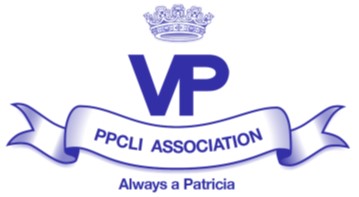Since June 2017, Dave Pentney has been the VPP Facilitator and the main driving force behind the support that we have been providing to various veterans in need. As of 4 April 2018, VPP has helped 18 veterans. Only two of these individuals were Association members and in fact there was also an Engineer, Signaller and Admin Clerk in the group. The requests for assistance involved everything from attempted suicide, homelessness, financial distress, assistance with VAC claims to Social Support.
Many of these cases were referred to us by VETS Canada. Both the Regimental Veterans Care Cell (RVC) and VPP have a very good relationship with VETS Canada. Cases initiated by VETS Canada are generally about contacting the veteran and providing moral support. VETS Canada does most of the detailed work in physically getting the individual off the streets and into suitable, if temporary, accommodation. Two cases of these involved non-Patricias (one Sigs and the other CME). In both instances we were able to facilitate a hand-over to their respective Associations.
Most cases have been a relatively simple matter of touching base with the veteran, acting as a point of contact and letting them know that they are not alone while providing limited assistance. There have been a few that are more complex. In one case, a retired Patricia did not have sufficient funds for medical treatment for his wife. RHQ/RVC took the lead in coordinating funding through the Royal Canadian Legion, the Soldier On Trust and a PPCLI Benevolent Fund Grant. VPP acted as the point of contact with the veteran. In another case, we were advised by another agency that a former Patricia, undergoing PTSD treatment needed a serviceable vehicle in order to attend treatment sessions. This case was referred to the local branch. This was resolved when an anonymous donor agreed to pay for a replacement vehicle – an unbelievably generous act.
More than 40% of the cases dealt with to date have been outside the catchment area of an established branch. In these cases, Dave has contacted an Association member, most often an E-Member, and sought their assistance. In all cases they have responded positively, if they were in the area, and have made the first contact with the veteran, then reporting back to Dave while continuing to follow-up as required
The VVP network is growing and via the Mental Health and Suicide Awareness workshops we have trained 6 retired and 4 serving Patricias in Edmonton and another 12 retired Patricias in BC. The workshops have been very successful and the Naval participants in Victoria were very supportive and appreciative of being included. The workshops consist of a two-day VAC Mental Health First Aid course for Veterans and a third day which focuses on the duties and responsibilities of a Branch VPP coordinator. For the third day, there are a series of guest speakers from VETS Canada, Operational Stress Injury Social Support (OSISS), SISIP, Soldier ON, Legion Service Officer and VAC. These speakers provide an overview of how they help veterans and how they can be contacted. It is not our intent to create a new system. It is critical that the Branch VPP coordinators understand who is available to assist veterans and how to contact the agencies in their region. We also reviewed several case studies based on the veterans we have helped since June 2017. The intent was to highlight what worked well and where we need to improve our support to veterans.
It was stressed during the workshops that we are all volunteers and are not Mental Health experts. Our capacity to affect change is limited and we must deliver on what we promise. We cannot work in isolation and need to develop partnerships with like minded agencies that currently exist to assist veterans. We need a pool of trained volunteers across Canada. To accomplish this, we are planning to conduct three workshops in Sep and Oct. The intent is to bring Patricias in from outside the local area and from adjacent Provinces. It is estimated that it will cost up to $30,000 for the three workshops, including the one that was just conducted in Victoria. This is primarily due to travel and accommodation costs. In order to alleviate this cost an application has been made to True Patriot Love for a grant of $24,000. TPL has acknowledged receiving the request and it is believed that we have a very good chance of receiving some or all of the funds requested.
The planned workshops are:
Gagetown 7-9 Sep with participants from Nfld, NS, PEI, Quebec and NB;
Calgary 21 -23 Sep with participants from Alberta, Man, Sask and Yellowknife; and
Kingston 19 – 21 Oct with participants from Ontario and Quebec.
By the end of Oct, we should have up 60 trained VPP coordinators across Canada. There is little doubt that requests for assistance will increase as more as more people become aware of what the Association is doing to help Veterans. Several other Associations have been approached with respect to adopting the PPCLI Association Mental Health and Suicide Awareness Workshop model. The Association has put in place an action plan because of the workshop that was conducted at the 2017 National AGM. Mental Health and Suicide Awareness is a complicated issue to address and as an Association we are setting the example for others.
On 6 April, Dr Alexander Heber, Chief Psychiatrist for VAC, requested that the PPCLI Association participate in a one-day roundtable discussion to be held in Ottawa on 23 May. The roundtable will discuss whole-of-community approaches for preventing suicide with representatives from researchers, clinicians, front-line workers and various veteran Associations. The work that the PPCLI Association is doing with respect to Mental Health and Suicide Awareness is being observed and followed at senior levels within VAC.
We are making a difference in the lives of veterans and if we save only one life it is worth the effort.
Paul Hale
President


Recent Comments